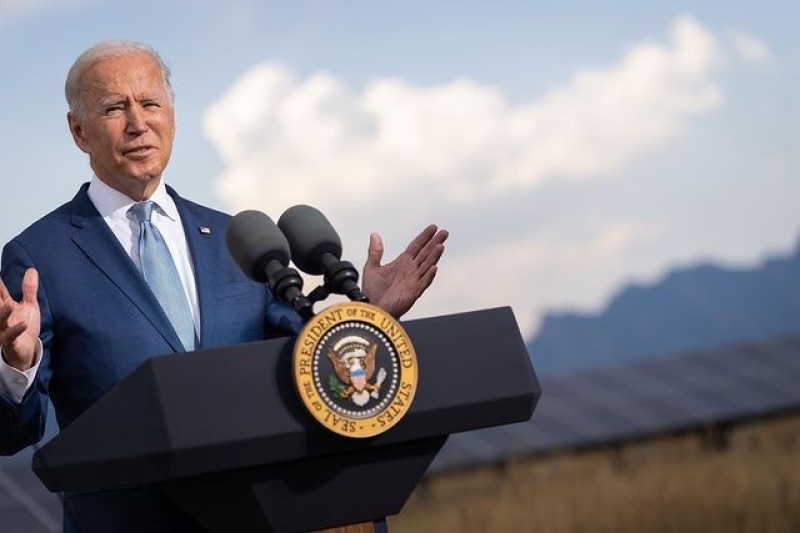
Most American voters believe that President Joe Biden is at least somewhat responsible for the current divide in the U.S. That is the conclusion drawn from a new Trafalgar Group survey that was conducted just before Thanksgiving with the Convention of States Action, which found that 54.2% of voters admitted to believing the Democratic leader was "responsible" for divisions among Americans today.
According to the Trafalgar Group survey, a little over half or 54.2% of survey respondents said that President Biden was "very responsible" or "somewhat responsible" for the divisions seen today. On the contrary, 45.8% said that the Democratic leader was "not very responsible" or "not responsible at all." In terms of political affiliation, up to 88% of Republicans blamed President Biden for political strife, versus only 21.3% of Democrats.
Meanwhile, a majority of Democrats at 78.7% admitted that President Biden was "not very responsible" or "not responsible at all" for divisions, while only 12% of Republicans said the same. Those who did not affiliate themselves with the Democratic or Republican parties also placed some blame on President Biden, with up to 64.1% saying that he was "very responsible" or "somewhat responsible" for division in the U.S. versus 35.9% who said he was "not very responsible" or "not responsible at all."
The Trafalgar Group poll surveyed 1,092 likely general election voters between November 13 to 16 this year, with a margin of error of about 2.97% points.
The New York Post reported that during his January inauguration ceremony, President Biden underscored the unity theme of his campaign. He said at the time, "The answer is not to turn inward, to retreat into competing factions, distrusting those who don't look like you or worship the way you do, or don't get their news from the same sources you do. We must end this uncivil war that pits red against blue, rural versus urban, conservative versus liberal. We can do this, if we open our souls instead of hardening our hearts."
But political analysts have criticized President Biden's promises of unity as "a vacuous platitude," Al Jazeera reported in February. Vanderbilt University professor Robert Talisse, who focuses on political philosophy, argued, "If we mean by unity, something like consensus, or consilience, and agreement, and everybody getting in line, I think that's actually not only not desirable - it's bad for democracy."
Talisse remarked that the Democratic leader should have instead leaned into the idea that "democracy is the proposal that we can live together as equal citizens and achieve a relatively just, stable, decent society, despite the fact that we really disagree sometimes about what government should be."
During his inauguration, President Biden did not shy away from calling out "political extremism, white supremacy and domestic terrorism," as if referring to the riot on Capitol Hill merely 15 days before he took the White House by former President Donald Trump's supporters. His speech earned backlash from Republican leaders including Senator Paul Rand, who accused the president of using "thinly veiled innuendo" by calling all Republicans and conservatives "white supremacists," a divisive act that went against his message of unity.
























